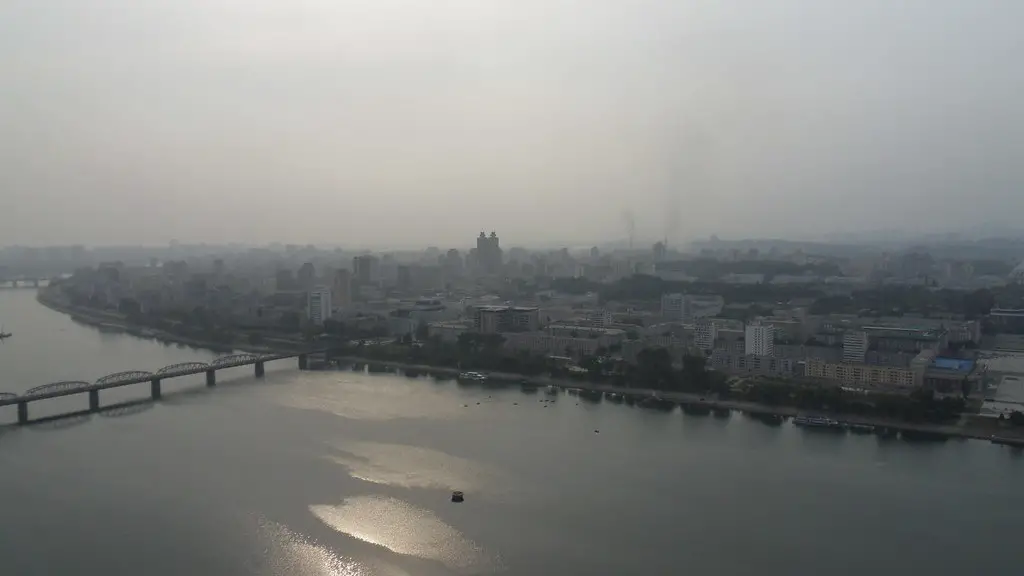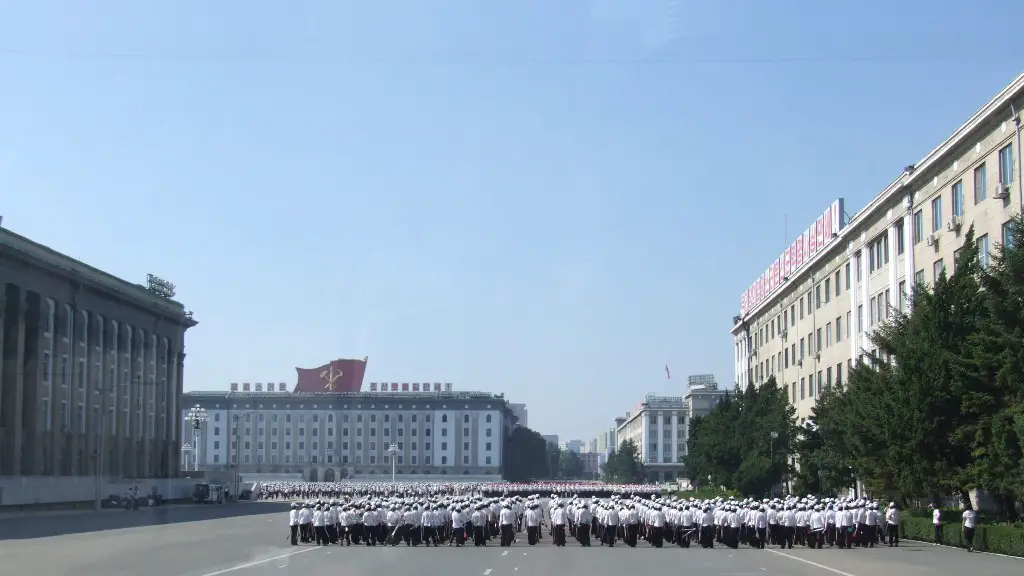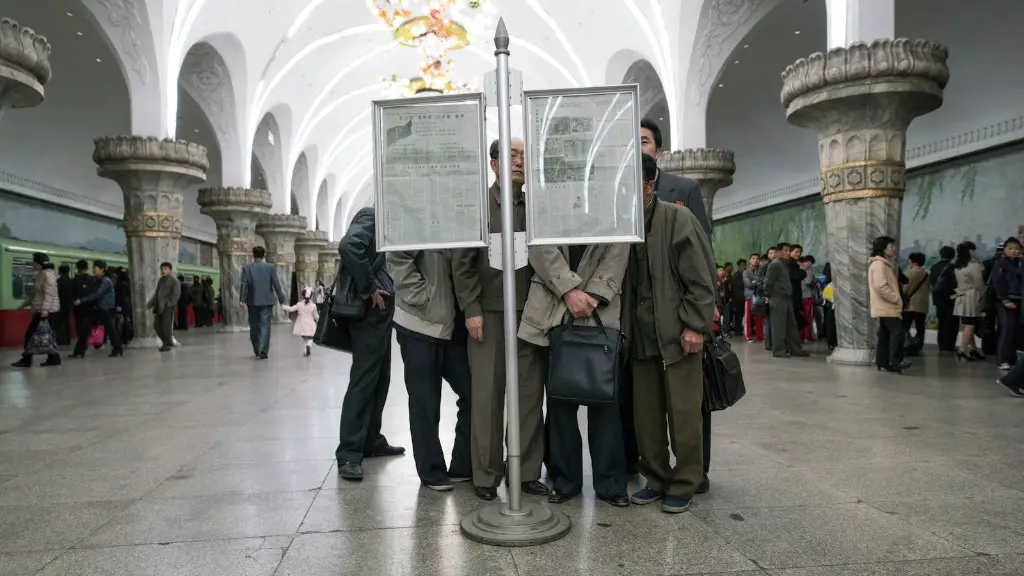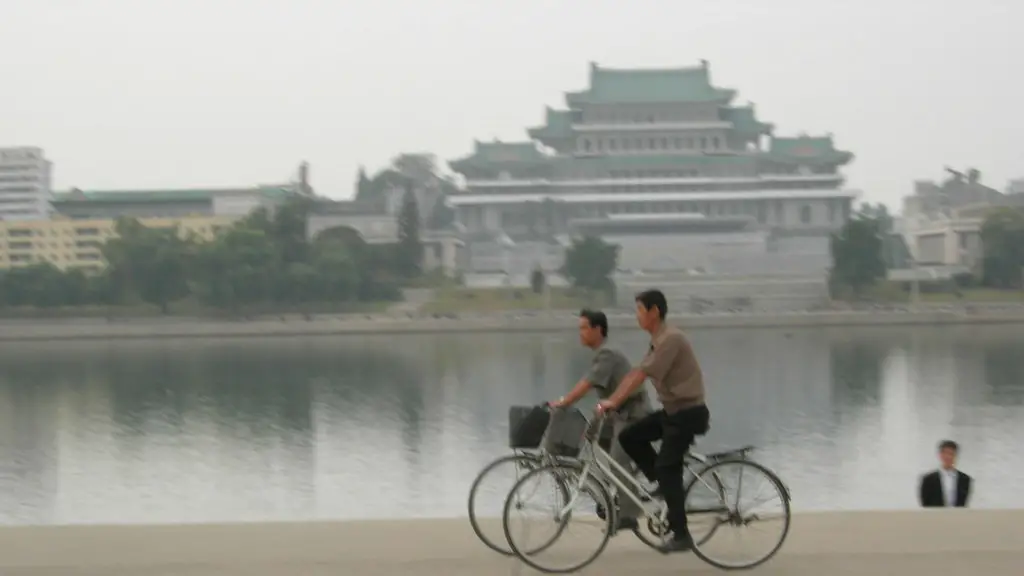In recent years, North Korea has become a very real threat to the United States. With the development of an ever more sophisticated nuclear weapons program and the belligerence of its leader Kim Jong Un, many Americans are beginning to worry about the possibility of a North Korean attack on the United States. But what would happen if North Korea did decide to attack?
The most likely scenario would involve North Korea deploying intercontinental ballistic missiles featuring nuclear warheads. Should such an attack take place, its target would likely be the cities of Los Angeles, San Francisco, and/or Washington D.C. Such an attack would likely have catastrophic effects, putting millions of lives at danger and leading to the destruction of numerous major cities.
As devastating as this would be, experts argue that the most dangerous aspect of such an attack would be North Korea’s capability for “electromagnetic pulse attack.” This kind of attack is seen by some experts as the most dangerous consequence of a North Korean attack, as it would cause a multi-state blackout and significantly damage the U.S. electrical power grid. Such an attack would also cause significant economic losses, as the U.S. relies heavily upon its power grid for electricity.
To further complicate matters, there are serious concerns that North Korea could deploy a cyber attack in the event of an attack on the United States. Such an attack could be used to shut down the U.S. communication infrastructure and cause disruption of services. It could also result in the release of sensitive information or the manipulation of financial records.
Given the uncertainty surrounding North Korea and the potential consequences of a North Korean attack on the United States, it is essential for the U.S. government and citizens to stay informed and prepared. To this end, the U.S. government should work diligently to develop contingency plans and enhance international diplomatic relations in order to de-escalate tensions with North Korea. At the same time, the U.S. public should remain vigilant, take precautionary measures and be aware of the potential consequences of an attack from North Korea.
North Korean Military Strength
Another serious concern regarding a potential North Korean attack on the United States is the strength of its military. North Korea is believed to possess a large arsenal of conventional weapons, including tanks, artillery and mobile rocket launchers. In addition, North Korea is believed to possess several thousand troops and a large force of submarines.
At present, the North Korean military is thought to be capable of conducting maneuvers that could potentially overwhelm U.S. forces. This means that a North Korean attack on the United States could result in an overwhelming of U.S. forces and a successful invasion of the United States. In such an event, the destruction to American lives and property could be immense.
Given the strength of the North Korean military, it is essential that the U.S. government and its citizens prepare for the event of a North Korean attack. U.S. military forces should be substantially increased and U.S. citizens should be trained in emergency and evacuation procedures in order to maximize their chances of avoiding harm in the event of a North Korean attack.
U.S. Reactions To A North Korean Attack
Given the potential destruction and devastation that could result from a North Korean attack, it is essential that the United States takes appropriate measures to respond. The most logical course of action would be for the U.S. to launch a counter attack against North Korea in order to prevent further destruction. Such an attack could take the form of airstrikes or the deployment of U.S. military forces on the ground.
Other potential U.S. responses include the imposition of economic sanctions against North Korea or the invocation of the United Nations’ Security Council powers to launch a more concerted military response. Ultimately, the course of action that the U.S. takes in response to a North Korean attack will depend on the severity of the attack and the U.S. government’s assessment of the situation.
Given the severity of the potential consequences of a North Korean attack, the U.S. government must be vigilant and prepared. The U.S. must continue to be proactive in addressing tensions with North Korea and be prepared to respond quickly and decisively should an attack take place.
North Korean Strategy and Goals
At the same time, it is important to understand North Korea’s objectives in the event of an attack. North Korea is a country that is highly isolated and typically operates according to its own interests. It is believed that North Korea’s primary objective in the event of an attack would be to undermine the U.S. economically, politically, and militarily. North Korea could theoretically use an attack against the U.S. as a means of demonstrating its own sense of power and legitimacy in the region.
In addition, North Korea could potentially use an attack against the U.S. to achieve other political goals. For instance, the country could feasibly use an attack on the U.S. as a means of demonstrating its desire to be recognized as a powerful state in the region. By attacking the U.S., North Korea could potentially gain leverage in negotiations over its nuclear program and potentially gain recognition as a nuclear power.
Finally, North Korea could employ a strategy of attacking America in order to preemptively defend against U.S. forces. In this scenario, North Korea could utilize a preemptive attack to prevent U.S. forces from entering its territory and attempting to overthrow the regime. By attacking first, North Korea could potentially gain the upper hand in the conflict and undermine the U.S.’s ability to act.
International Reactions
In addition to domestic reactions to a North Korean attack, it is also important to consider the potential international reaction. It is likely that the attack would be condemned by the international community and that the U.S. would call for a unified response to North Korea. Such a response would likely involve a range of diplomatic and economic measures designed to isolate North Korea and deter further aggression.
However, it is also possible that the international community could remain divided over how to respond to a North Korean attack. This could result in some nations welcoming the attack, while others would be reluctant to support military action against North Korea. Thus, there is the potential for an international split over the issue, which could ultimately result in a prolonged conflict.
In any case, it is essential that the international community come together to respond to a North Korean attack. It is in everyone’s interest that North Korea is deterred from attacking the United States or any other nation. To this end, the international community must come together to send a unified message and take decisive action if necessary.
Political Implications
Finally, it is important to consider the potential political implications of a North Korean attack on the United States. While the immediate consequence of such an attack would be devastation and destruction, the political implications could be far-reaching and long-term. Political repercussions could potentially include a collapse of the U.S.’s image as a global superpower and a significant weakening of the United States’ military and economic clout.
At the same time, a North Korean attack could lead to a significant shift in the regional balance of power. Such a shift could lead to a decrease in the influence of the U.S. in the region and a corresponding increase in the influence of North Korea. Ultimately, this could result in a more unstable regional environment that can potentially fuel further insecurity and conflict.
Furthermore, a North Korean attack could also lead to increased tensions between the U.S. and its geopolitical rivals such as China and Russia. In such a scenario, the potential for a wider conflict that spans the Pacific region could become a reality.
Given the potential consequences of a North Korean attack on the United States, it is essential that the U.S. take all necessary steps to prepare for the possibility of such an attack. The U.S. must remain vigilant and engage in active diplomacy to de-escalate tensions. At the same time, it is also essential that the U.S. be prepared to respond swiftly and decisively if and when the situation arises.





